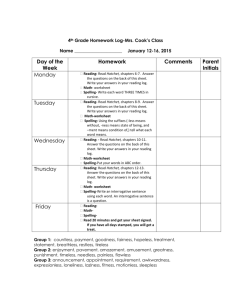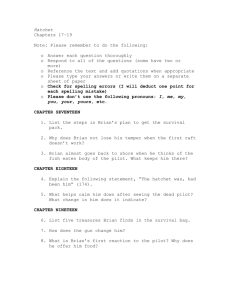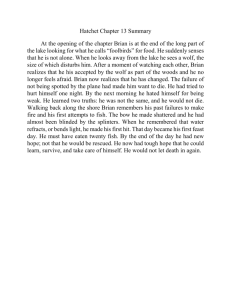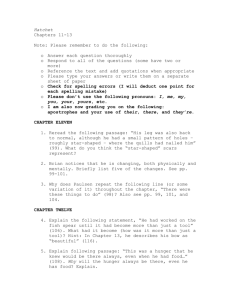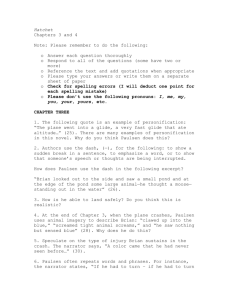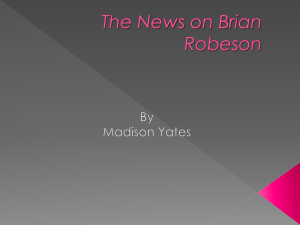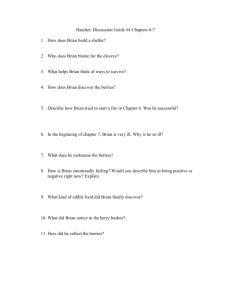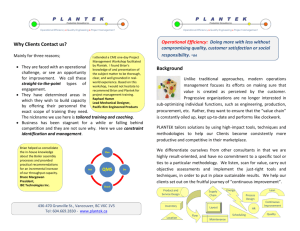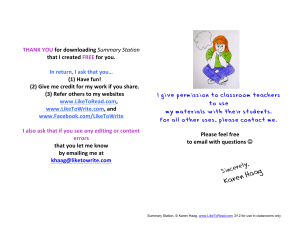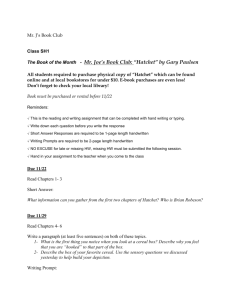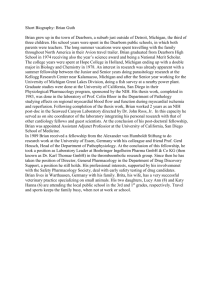Hatchet by Gary Paulsen
advertisement
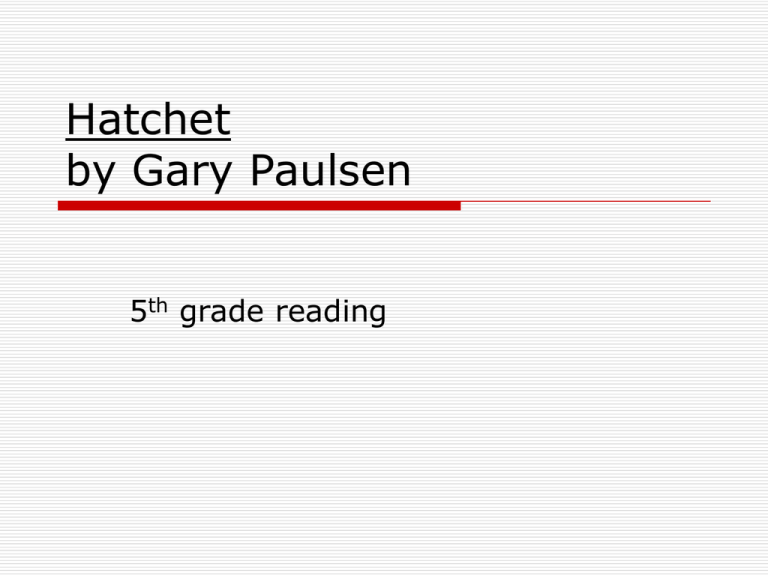
Hatchet by Gary Paulsen 5th grade reading Connections Text to text (T-T): these are connections you make between what you are reading to something you have read before. Text to self (T-S): these are connections you make between what you are reading and something that has happened to you. Text to world (T-W): these are connections you make between what you are reading and the bigger issues and events of the world. Discussion questions Chapters 1 & 2 What memory do you think was troubling Brian? What are some ways that Brian might use his hatchet? Prediction Using observations or experiences to make a reasonable guess about what will happen. Author’s Purpose Persuade: wants to convince you to do something, buy something, or believe in something. Inform: wants to give you information, facts, or ideas about something. Entertain: wants you to enjoy what you read Discussion questions Chapters 3 & 4 Do you think Brian should have kept the secret about his mother to himself or should he have talked to her about what he had seen? What do you think Brian should do first to ensure his survival? What do you think Brian might find in his surroundings to help him survive? Compare and Contrast When you compare two things, you look at them to see how they are alike. When you contrast two things, you notice how they are different. Drawing conclusions Drawing conclusions means combining clues from what you are reading with clues from your own experiences to make a decision. Discussion questions Chapters 5 & 6 Do you think Brian had the skills and temperament to survive alone in the wilderness? Do you think you could survive in a similar setting? Figurative language Simile: comparing two unlike things using like or as. The skating rink was like glass. Metaphor: comparing two unlike things without using like or as. The tree was a giant soldier. Personification: giving human qualities to a non-human thing. The sun smiled down on me. Personification The eggs had awakened his hunger fully, roaringly, so that it tore at him. What two objects are being personified? Why is better than just saying Brian was hungry? Inferences Authors don’t always tell their readers exactly how the story characters are feeling or what they are doing. Sometimes the authors give clues about what is happening. Then it is up to the reader to make inferences based on the clues and their own experiences to figure out what is happening. Cause and Effect As in real life some things cause other things to happen. A cause is why something happens. Look for words like because, so, as a result. The effect is what happens.
